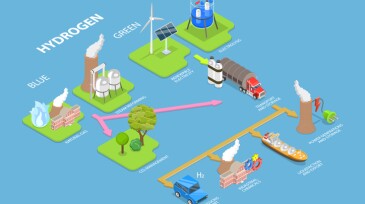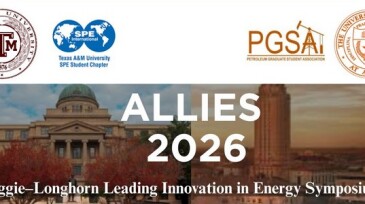Energy Transition
With more than 75,000 professionals in attendance, the fourth edition of India Energy Week brought together industry leaders, policymakers, and energy stakeholders to discuss not just oil and gas, but the future of energy.
Hydrogen is emerging as a key low-carbon energy carrier for the energy transition, with multiple production pathways that differ in cost, emissions, and scalability trade-offs.
By integrating AI into every layer of the energy ecosystem, from renewable forecasting to dynamic pricing, the path toward secure, sustainable, and affordable energy becomes not just possible but achievable.
-
The plan seeks to train the next generation of clean-energy workers, aiming to double employment in the sector to 860,000 by 2030.
-
The two projects under the university’s Targeted Proposal Teams program will focus on underground hydrogen and geologic storage solutions.
-
The 2-day engagement was designed to reinforce SPE’s commitment to its global sections, engage with key industrial and academic partners, and inspire the next generation of energy professionals in one of Southeast Asia's recently active and vibrant energy hubs.
-
This article highlights how oil and gas companies are leveraging existing infrastructure, expertise, and emerging technologies to lead in the development of the hydrogen economy.
-
Early- and mid-career scholars are invited to apply for the 2026–2027 Harrington Faculty Fellows Program, which will focus on energy research.
-
The university's new undergraduate program in natural gas, renewables, and oil engineering will train students in both traditional oil and gas cirricula and renewable energy.
-
The program will train more than 1,200 workers across Canada for careers in carbon capture, utilization, and storage.
-
Geothermal energy currently supplies less than 1% of US power but could reach approximately 10% with enhanced systems if well integrity challenges are solved, positioning it as a key player in a net-zero 2050 grid.
-
The universities are forming a national hub focused on advancing safe and reliable subsurface storage of energy-related fluids.
-
The free, 1-day symposium will bring together graduate students, faculty, and industry leaders dedicated to advancing research, career growth, and energy innovation.
Page 1 of 9













